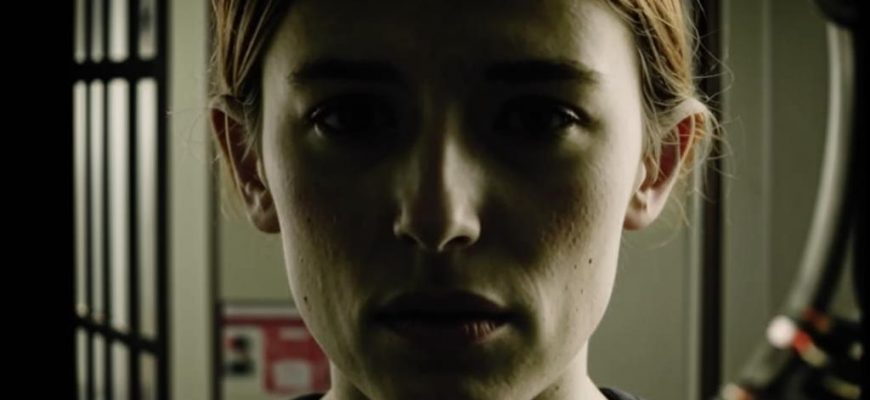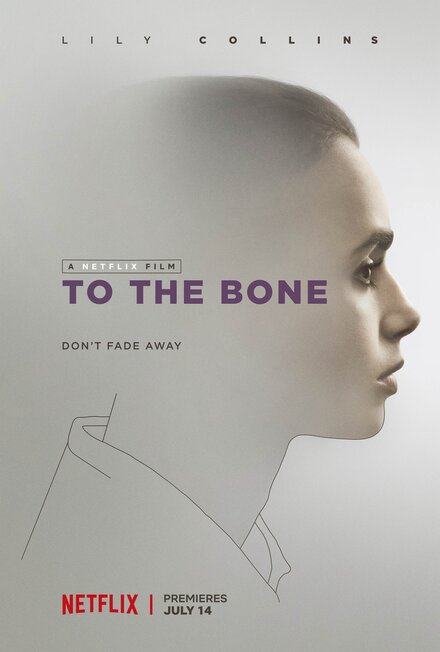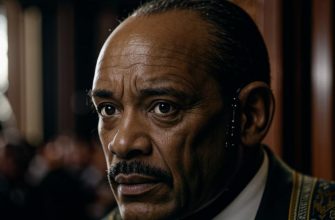Films addressing the complex themes of anorexia and self-harm delve into the emotional and psychological turmoil experienced by individuals suffering from these conditions. These narratives often explore the struggles with body image, control, and the impact of societal pressures. Such films can be raw and emotional, offering insight into the challenges faced by those dealing with eating disorders and self-harming behaviors, as well as the journey toward recovery and self-acceptance.
“To the Bone”, 2017
Director: Marti Noxon
Directed by Marti Noxon, this drama stars Lily Collins as Ellen, a 20-year-old woman who battles anorexia. The film delves into her journey of acceptance and recovery, highlighting the emotional struggles and the impact of eating disorders on both the individual and their relationships.
Starring: Lily Collins, Keanu Reeves, Carrie Preston, Lili Taylor, Alex Sharp, Liana Liberato, Brooke Smith, Leslie Bibb, Kathryn Prescott, Ciara Bravo;
Production year: 2017;
Genre: drama;
Duration: 107 min.;
Rating: IMDB: 6,8;
“Thin”, 2006
Director: Lauren Greenfield

This documentary, directed by Lauren Greenfield, provides a harrowing look inside a treatment facility for women with eating disorders. Featuring the stories of four women, “Thin” explores the complex issues surrounding anorexia and bulimia, giving viewers a raw and unfiltered glimpse into the severity of these conditions.
Starring: Shelly Guillory, Brittany Robinson, Alisa Williams, Polly Williams;
Production year: 2006;
Genre: documentary;
Duration: 102 min.;
Rating: IMDB: 7,4;
More information about the film “Thin” on the website imdb.com
“Girl, Interrupted”, 1999
Director: James Mangold

While primarily focused on the story of a young woman's stay in a mental institution, this film directed by James Mangold and starring Winona Ryder and Angelina Jolie includes characters dealing with a range of mental health issues, including anorexia. Through its portrayal of institutional life and the interactions between patients, “Girl, Interrupted” sheds light on the intertwined complexities of mental illness.
Starring: Winona Ryder, Angelina Jolie, Clea DuVall, Brittany Murphy, Elisabeth Moss, Jared Leto, Jeffrey Tambor, Vanessa Redgrave, Whoopi Goldberg, Angela Bettis;
Production year: 1999;
Genre: drama, biography;
MPAA rating: r;
Duration: 127 min.;
Rating: IMDB: 7,3;
More information about the film “Girl, Interrupted” on the website imdb.com
“Sharing the Secret”, 2000
Director: Katt Shea

This TV movie directed by Katt Shea addresses the issue of bulimia through the story of a young girl struggling to cope with the pressures of adolescence, leading her to develop an eating disorder. It explores not only her journey but also the effect it has on her family.
Starring: Mare Winningham, Alison Lohman, Lawrence Monoson, Mary Crosby, Diane Ladd, Tim Matheson, Camryn Grimes, Brighton Hertford, Kady Cole, Julius Charles Ritter;
Production year: 2000;
Genre: drama;
Duration: 90 min.;
Rating: IMDB: 6,2;
More information about the film “Sharing the Secret” on the website imdb.com
“Perfect Body”, 1997
Director: Douglas Barr

Directed by Douglas Barr, this TV movie stars Amy Jo Johnson as a young gymnast who aspires to perfection. Facing immense pressure, she develops an eating disorder. The film critiques the extreme expectations placed on young athletes and the dangerous lengths to which they may go to achieve an idealized physique.
Starring: Amy Jo Johnson, Brett Cullen, Wendie Malick, Ray Baker, Tara Boger, Ron Melendez, Julie Patzwald, Cathy Rigby, Michelle Skalnik, Nicole McKay;
Production year: 1997;
Genre: drama, family, sport;
Duration: 100 min.;
Rating: IMDB: 6,1;
More information about the film “Perfect Body” on the website imdb.com
These films, varying from documentaries to dramas and biographical narratives, provide poignant insights into the suffering, challenges, and sometimes hopeful journeys of individuals dealing with anorexia and self-harm. Through their stories, a light is shone on these often misunderstood and hidden battles, fostering a deeper understanding and empathy towards those affected.
In conclusion, films about anorexia and self-harm navigate the precarious territory of representing both the internal struggle and the external manifestations of these complex conditions. They serve as pivotal cultural artifacts that, at their best, offer empathy and understanding, shining a light on the often misunderstood experiences of those who suffer. Through narratives that range from harrowing to hopeful, they invite audiences to confront the reality of these conditions, encouraging a broader societal conversation about mental health, body image, and the importance of support and understanding. Yet, it's crucial that these films balance between portrayal and glorification, ensuring they offer paths toward understanding and recovery rather than inadvertently romanticizing the struggle. By fostering a deeper awareness and promoting dialogue, films about anorexia and self-harm contribute to breaking down stigma, paving the way for healing and reflecting the multifaceted nature of human resilience.










